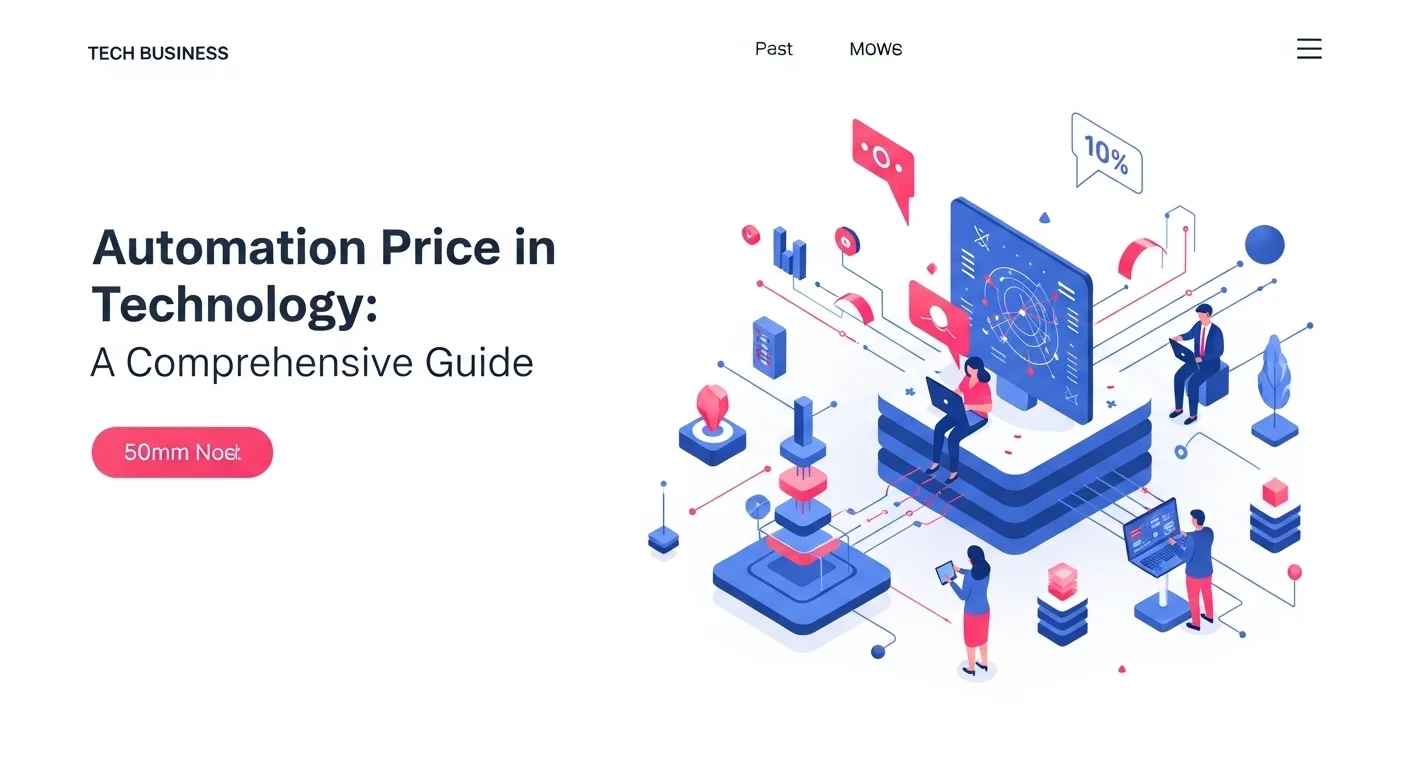Navigating the Digital Maze: A Real-World Guide to Internet Security for 2025

Executive Summary
In a world that runs on clicks and data, it's easy to feel like you're one wrong move away from a digital disaster. I've seen it happen to both individuals and large companies. That's why understanding internet security isn't just for tech experts anymore—it's for everyone. This guide is my attempt to cut through the noise. We'll start with the basics, like what threats such as malware and phishing actually look like in the wild. Then, we'll explore how you can build a strong defense, whether for your home computer or your growing business. We'll look at the tools that work, the strategies that matter, and how to choose the right help when you need it. My goal is simple: to leave you feeling confident and empowered to navigate the online world safely.
Table of Contents
Table of Contents
- What is Internet Security, and Why is it so Crucial Today?
- The High Stakes of Internet Security for Modern Businesses
- Finding Your Way Through the Security Provider Maze
- A Practical Guide to Internet Security Tech and Business Solutions
- Business Strategies: It's About More Than Just Tech
- How to Choose the Right Internet Security Partner
- Actionable Tips and Strategies for a Better Tech Experience
- Leveling Up: Advanced Tools and Smarter Strategies
- Finding the Right Security Company to Partner With
What is Internet Security, and Why is it so Crucial Today?
Let's be honest, 'Internet Security' sounds like a huge, intimidating topic. But at its heart, it's simply about protecting ourselves and our information online. As a specific field within the broader world of cybersecurity, it zeroes in on the dangers we face every time we connect to the internet. The goal is to set up rules and defenses against a constant stream of attacks that threaten everything from our personal photos to a company's entire operation. The internet was built for connection, not for security, which means every email we send and every purchase we make is a potential weak spot. Recognizing this is the first, most important step for anyone wanting to stay safe in our digital age.
The threats we face are varied and always changing. You’ve probably heard of malware—this is the umbrella term for nasty software like viruses, spyware, and the one everyone dreads, ransomware, which locks up your files and demands payment. Then there's phishing, a sneaky tactic where scammers send fake emails, maybe pretending to be your bank, to trick you into giving up passwords or credit card numbers. I've seen phishing emails so convincing they could fool even a trained eye. Other major risks include Denial-of-Service (DoS) attacks that flood a website with traffic until it crashes, and Man-in-the-Middle (MitM) attacks, where a hacker secretly sits between you and a service, listening in or even changing what you see. The sheer creativity of these attacks shows why a solid defense is absolutely essential.
The High Stakes of Internet Security for Modern Businesses
For any business today, the risks have never been greater. Data is the new currency, and protecting it is job number one. A single security breach can cause staggering financial loss, hefty regulatory fines, and destroy the trust you've built with your customers. The prediction that cybercrime costs could reach $10.5 trillion globally by 2025 isn't just a scary number; it's a wake-up call. This is why so many businesses now rely on specialized internet security companies to build and manage their defenses. These expert firms bring the tools and knowledge needed for a complete security plan, from finding weaknesses to watching for threats around the clock.
Good online protection is the bedrock of keeping a business running. An attack can shut down your operations in an instant, costing you revenue and productivity. Simple but effective tools like firewalls, antivirus programs, and intrusion detection systems are what keep the lights on. Moreover, protecting sensitive data isn't just good practice—it's the law. Regulations like GDPR demand strict data handling, with big penalties for failure. Building a strong security posture not only keeps you compliant but also shows your customers you care about their privacy, which can become a powerful competitive advantage.
Finding Your Way Through the Security Provider Maze
Trying to find the right security solution can feel overwhelming. The market is crowded with vendors all claiming to have the magic bullet. When you're looking for a partner, it's wise to seek out the best internet security companies that offer a complete package, not just a single piece of software. These top providers deliver a suite of services, including advanced threat hunting, 24/7 monitoring, and a team ready to respond the moment a breach occurs. Industry leaders like Palo Alto Networks, Fortinet, and CrowdStrike are known for their cutting-edge technology, from smart firewalls to AI-powered endpoint protection.
Choosing the right firm depends entirely on your unique situation. A small online store has different needs than a large hospital, which must comply with strict patient privacy laws like HIPAA. The key is to find a solution that protects your entire digital footprint. This means having strong internet network security to guard the flow of information and solid computer internet security to protect every laptop and server connected to it. I've always advocated for a layered defense strategy. The idea is simple: create multiple barriers so that if one fails, another is there to stop the attack. Ultimately, spending on high-quality internet security isn't an expense; it's an investment in your business's survival and future growth.

A Practical Guide to Internet Security Tech and Business Solutions
When you look under the hood of internet security, you find a world of smart technologies and strategic thinking. A strong defense is built on a few core principles, and one of the most important is encryption. In simple terms, encryption scrambles your data into a secret code. Even if a hacker intercepts it, they can't read it. You see this in action with protocols like TLS (what gives you the little padlock in your browser's address bar), which protects data as it travels online. But it's just as important to encrypt data that's just sitting on a server or a laptop. These two types of encryption work together to form a powerful shield against prying eyes.
Firewalls are the gatekeepers of your network. I like to think of a firewall as the bouncer at a digital club—it checks every piece of data trying to get in or out and turns away anything that looks suspicious. Old-school firewalls were pretty basic, but today's Next-Generation Firewalls (NGFWs) are much smarter. They can understand which applications are running, use live threat data from around the globe, and even step in to block threats automatically.
Beyond firewalls, a few other pieces of tech are indispensable. Virtual Private Networks (VPNs) create a secure, encrypted tunnel over the public internet, which is crucial for letting employees work from home safely. Access control systems are all about making sure people can only get to the data they're supposed to. This is where Multi-Factor Authentication (MFA) comes in—by requiring a second form of proof (like a code from your phone), you make it dramatically harder for someone to break in with just a stolen password. And finally, Intrusion Detection and Prevention Systems (IDS/IPS) act as digital security guards, constantly watching the network for suspicious activity and either raising an alarm or blocking the threat on the spot.
Business Strategies: It's About More Than Just Tech
Having the best technology in the world won't help if it isn't backed by a smart business strategy. A good security program always starts with a risk assessment—a professional look at where your biggest vulnerabilities lie. From there, you can build a security policy that sets clear rules for everyone. This includes an Acceptable Use Policy (AUP), which is just a straightforward document telling employees what they can and can't do on company devices and networks.
In all my years in this field, I've learned that the most critical part of any security plan is your people. Humans can be the weakest link, often falling for phishing scams or other tricks. Regular, engaging training can turn your employees from a risk into your first line of defense by teaching them how to spot threats and handle data with care. Another non-negotiable strategy is having an Incident Response Plan. It's not a matter of *if* you'll face a security incident, but *when*. Having a clear plan for that moment means you can respond quickly and effectively to minimize damage, get back online, and keep your customers informed.
How to Choose the Right Internet Security Partner
Once you know what you need, you can start looking for a security partner. The market is full of internet security companies, from massive corporations to small, specialized firms. To find the right fit, it helps to look at what industry analysts and real users are saying to identify the best internet security companies for your needs. Leaders for home and small business users often include names like NortonLifeLock, McAfee, and Bitdefender, while enterprises often turn to Palo Alto Networks, Fortinet, and Zscaler for their advanced network and cloud security needs.
The selection process should be thorough. First, write down exactly what you need. Are you a startup living in the cloud, or a manufacturer needing to protect factory floor systems? Next, check the provider's track record. Do they have experience in your industry? Look for official certifications. A great partner should offer a full range of services, from protecting individual laptops with strong computer internet security to managing your entire network's defense. Finally, think about the long term—will this solution grow with you? What is their customer support like? Finding the right partner isn't just about buying a product; it's about finding an ally who will help you stay safe as threats continue to change.

Actionable Tips and Strategies for a Better Tech Experience
Improving your online safety is a journey, not a destination. It's about building good habits and using the right tools. For anyone, individual or business, the best place to start is with the basics that make a huge difference. The most powerful, simple step is practicing good password hygiene. I can't stress this enough: use strong, unique passwords for every single account, and use a password manager to keep track of them all. Reusing passwords is like giving a thief a master key to your entire digital life. And please, turn on multi-factor authentication (MFA) wherever you can. It's a massive security upgrade that stops most attacks even if a hacker has your password.
Another cornerstone of good computer internet security is keeping your software updated. Those update notifications you might be tempted to ignore often contain critical security patches. Delaying them is like leaving your front door unlocked. Similarly, you have to be your own best defense against phishing. Be skeptical of any unexpected email that creates a sense of urgency or asks for personal information. Never click on strange links or download attachments from people you don't know. For businesses, a solid backup strategy is your ultimate safety net. The 3-2-1 rule is a great guideline: keep three copies of your data, on two different types of storage, with at least one copy stored somewhere else entirely (off-site or in the cloud). This way, if you're hit by ransomware, you can restore your data without paying a dime.
Leveling Up: Advanced Tools and Smarter Strategies
Once you've mastered the basics, you can look at more advanced tools to build a truly resilient security posture. Security Information and Event Management (SIEM) systems are like a central nervous system for your security operations. They collect data from all over your network and use smart analysis to spot trends and detect threats that would otherwise be invisible. It gives you a single pane of glass to see everything that's happening.
For protecting individual computers and servers, Endpoint Detection and Response (EDR) is the modern standard. Unlike old antivirus software that just looked for known threats, EDR tools constantly watch for suspicious *behavior*. If something seems off, EDR can automatically isolate the device to stop an attack from spreading and give security teams the data they need to investigate.
The way you design your internet network security is also evolving. A strategy I recommend to all my clients is called the Zero Trust model. The philosophy is simple: 'never trust, always verify.' It gets rid of the old idea of a 'safe' internal network and treats every request for access as a potential threat until it's verified. This is perfect for today's world where employees work from everywhere.
Finding the Right Security Company to Partner With
Let's face it, implementing these advanced strategies requires a level of expertise most businesses don't have. This is where a partnership with one of the top internet security companies becomes a game-changer. They can manage everything from 24/7 monitoring to handling a full-blown security incident. When you're choosing a provider, do your homework. Look past the slick marketing and dig into their technical skills, reputation, and what their current clients say. The best internet security companies are always transparent about what they do and offer clear agreements on their responsibilities.
The future of this field is being shaped by Artificial Intelligence (AI) and Machine Learning (ML). I've seen firsthand how AI can supercharge threat detection, finding subtle malicious patterns in mountains of data that a human could never spot. AI can also automate responses to common threats, freeing up human experts to tackle the truly complex problems. As you plan for the future, ask potential partners how they are using AI to stay one step ahead of the attackers. By combining your own good habits with advanced tools and a strategic partnership, you can create a technology experience that is both powerful and secure.
Expert Reviews & Testimonials
Sarah Johnson, Business Owner ⭐⭐⭐
The information about Internet Security is correct but I think they could add more practical examples for business owners like us.
Mike Chen, IT Consultant ⭐⭐⭐⭐
Useful article about Internet Security. It helped me better understand the topic, although some concepts could be explained more simply.
Emma Davis, Tech Expert ⭐⭐⭐⭐⭐
Excellent article! Very comprehensive on Internet Security. It helped me a lot for my specialization and I understood everything perfectly.



